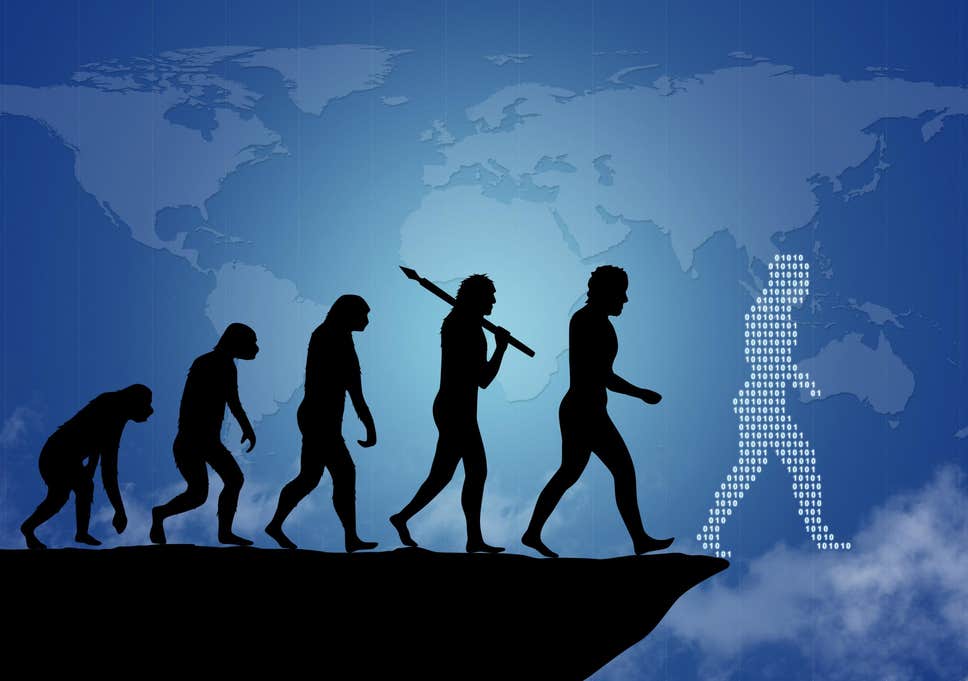
I replaced my iPhone this week. With my updated MacBook, they’re my two most essential devices. I realized that I interact with them more than with anyone else most days (except maybe Wally).
I’m startled to write this.
The new phone brought renewed wonderment (even awe) at what a personal device like this can do, how they respond to my touch, and how indispensable they’ve become. It’s almost as if they should have names. Almost.
Steve Jobs and his lead designer at Apple, Jony Ives, wanted to create elegantly companionable objects that we’d want to touch, look at and listen to.
My current laptop still has that original, brushed aluminum skin that feels soft to my fingertips. One of the new, suggested screen-savers on my new phone features a low earth satellite image of my corner of the globe changing from the blues of daylight to the light specs of dusk as the day unfolds into night. Details like these add up.
So I was more than intrigued to learn this week that the same Jony Ives who’d imagined these devices into existence with Jobs has just joined up with the man who might be Jobs’ tech-world successor to bring us what they hope to be our Third Core Device (alongside the MacBook and iPhone).
In a video announcement that is pretty relatable in its own right, Sam Altman (the progenitor of the AI-driven ChatGPT) and Ives tell us the story of how, over the past few years, they decided to combine their resources to create and market a pocket-size, screen-free, non-wearable device that–through the mustering of its AI capabilities–could become our first “contextually aware” desk-top device.
So while I’ll eventually get to my weekly update of Family Strongman developments (including a warning about the next phase of the current regime)—it was a great relief this week to imagine with Altman and Ives how they (as opposed to Trump) might also be seizing part of my future before too many more months have passed.
So back to the Jony & Sam origin-story video that entered so many of our feeds in recent days.
As is evident from the photo of Ives and Altman up-top, there seems to be some chemistry here, two “creative visualizers” sharing similar wave lengths, not unlike when Ives and Jobs were imagineering the iPhone, and both of them could “just about see it.”
(I did a visuali collaboration like this when I was just starting out. I had a play space for kids in mind and wanted to show others what it might look like because words could only take me and my listeners so far. Working with a collaborator “to see what I was seeing” was a powerful, deeply personal experience, and ultimately a highly practical one. Over several weeks, my visualizer made beautiful color drawings of what he’d heard me describe—and they became welcomed accompaniments for my show & tells when I took my business plan on the road. They also pointed towards what my imagined space might have looked like if we had been even more in sync.)
During their recent announcement, Ives and Altman seemed to be sharing the kind of strangely intimate, “never-seen-before (except by the two of us)” mind space that I’d gotten only a glimpse of.
In a way, their story begins with Jobs passing and continues with Ives leaving diverse roles Apple six years ago to begin a design-work-experiment in the Jackson Square section of San Francisco. Together with Australian industrial designer Marc Newson, both hired architects, graphic designers, writers and a cinematic special effects developer, all of whom were invited to work across three areas: work for the love of it (which they did without pay); work for some high-end clients (which paid the rent) ; and work for themselves (which included renovating a block’s worth of historical buildings into their new home).
Two years ago, Charlie (one of Ives’ 21-year-old twin sons) told him about ChatGPT. Following his son’s excitement over the chatbot to its source, Ives connected with Altman and so began Ives’ next partnership. In the video—which is at once promotional, anticipatory and destiny-drenched—Ives describes Altman, a longtime entrepreneur and founder of OpenAI, as “a rare visionary” who “shoulders incredible responsibility, but his curiosity, his humility remain utterly inspiring.” Altman describes Ives as “the deepest thinker of anyone I have ever met. What that leads him to be able to come up with is unmatched.” In a WSJ article about their new partnership, Ives is quoted as saying: “The way that we clicked, and the way that we’ve been able to work together, has been profound for me.”
Their brotherhood launched, and eighteen months ago Altman sent OpenAI’s chief product developer to work with Ives’ team of “subject matter experts” in hardware and software engineering, physics, and product manufacturing. Last fall, the two sides became excited about a specific device they were fabricating, and Altman started taking prototypes home to use. He told the Journal: that their goal is to release a new AI-driven device (that is, tens of millions of units) to the public by late next year.
Of course, their even larger goal is to realize more of the promise of human-directed artificial intelligence than has been realized to date. As Altman says in the video:
“[With AI] I’m [already] two or three times more productive as a scientist that I was before. I’m two or three times faster to find a cure for cancer than I was before, because I have this incredible external brain.” [emphasis added]
And despite regular cautions about the future of AI—including here, in “Will We Domesticate AI in Time?”—Ives speaks with almost childlike delight and wonder about what this new device might start bringing us at the video’s conclusion.
“I think this will be one of these moments of just an absolute embarrassment of riches, of what people go create for collective society. I am absolutely certain that we are literally on the brink of a new generation of technology that can make us our better selves.”
It’s a beautifully expansive thought for a sadly claustrophobic time.

Of course there’s more to this partnership and product announcement than the principals’ affection for each other and an eagerness to improve our lives with a new “family” of “AI companions” that can complement our phones, laptops and other screened devices.
But some of the story is also about their regrets and dissatisfactions with the tech-driven choices that we have today. For example, in the New York Times’ coverage of their new collaboration, Ives admits: “I shoulder a lot of the responsibility for what these things have brought us,” referring to the anxiety and distraction that come with being constantly connected to the computer-phone that he, almost as much as anyone, put in all of our pockets.
For his part, Altman focused on the information overload that technology without a gate-keeper assaults us with these days.
I don’t feel good about my relationship with technology right now. It feels a lot like being jostled on a crowded street in New York, or being bombarded with notifications and flashing lights in Las Vegas.
He told the Times that his goal was to leverage A.I. to help people make “better sense of the noise.”
Altman and Ives will also have to navigate a highly competitive environment if they’re to succeed. Facebook parent Meta, Google parent Alphabet, Snap and Apple all have their own approaches to AI devices in development. Farthest along in development seem to be wearable glassses. An article in Barrons at the time of the announcement mentions a now-defunct company that was started by two ex-Apple employees and where Altman had also been an investor to make a non-wearable device. Unable to overcome the technical challenges, the so-called Humane AI Pin was quickly undermined by performance glitches and scathing tech reviews.
Barrons also brought a whiff of high-brow dabbling to Ives own track record since he left Apple in 2019:
All of [it]’s work has been in the ultra-luxury class. So far, its product designs are a jacket that starts at $2,000, a $60,000 limited edition turntable, some work for Ferrari…a logo and emblem for King Charles… and a partnership with Airbnb.
Nevertheless, if Altman and Ives revolutionary device succeeds, it could change the way that AI has been delivered and experienced by early adopters of chatbots over the last two years. As the WSJ noted:
While Apple and Google have struggled to keep pace with AI innovations, many investors see the two companies—whose software runs nearly all the world’s smartphones—as the primary means through which billions of people will access AI tools and chatbots. Building a device is the only way OpenAI and other artificial-intelligence companies will be able to interact with consumers directly.
In other words, Altman and Ives could effectively by-pass both Apple and Google with their new device, and all of the recent press reports provide tantalizing clues about how it will deliver—for both better and worse.
Barrons reports that their new device will likely be cloud-based. Despite that advantage, it will also stop working when off-network and may be marred with “latency” (or delays in transmission) even when users are connected.
More groundbreakingly, both the Times and the Journal suggest that there will be something like sentience in the new device.
The Times authors say Altman and Ives could spur what is known as “ambient computing” or a technology that makes digital interactions both natural and unobtrusive, as when a device in the background adapts to your needs without needing your commands. “Rather than typing and taking photographs on smartphones,” they note, such devices “could process the world in real time, fielding questions and analyzing images and sounds in seamless ways.”
Meanwhile, the WSJ teases (or frightens) us with the possibility that “[t]he product will be capable of being fully aware of a user’s surroundings and life, will be unobtrusive, able to rest in one’s pocket or on one’s desk”—in other words, more like a helpful companion or alter-ego than anything Silicon Valley has delivered to us before.
At least for now, I’m choosing to see these possibilities as closer to magical than to anything else.

A White House door-knob
This week’s Family Strongman links, images and comments include more on the president’s greed and self-dealing, which regularly feed the gilded image that he has of himself.
They include moments that would be purely laughable if they did not also illustrate how Trump’s “art of the deal” is undermining America’s ability to negotiate in our country’s best interests with rivals like China and Russia.
And I’ll leave you this week with some haunting observations by NYT columnist M Gessen (who was born in the Soviet Union) on how difficult it can be to maintain the necessary level of public outrage and push-back to the cumulative actions of any authoritarian regime.
Here are this week’s Trump-related comments, links and images to help keep you on the frontlines:
1. In Vanity Fair, right before the 2016 election, it’s good to recall that fellow New Yorker Fran Lebowitz called Mr. Trump “a poor person’s idea of a rich person.”
2. “As the Trumps Monetize the Presidency, Profits Outstrip Protest” includes New York Times reporter Peter Baker’s take on at least two of the reasons why the president and his family have faced less resistance and outrage than they normally would have–and each is Trump-engineered.
Mr. Trump, the first convicted felon elected president, has erased ethical boundaries and dismantled the instruments of accountability that constrained his predecessors. There will be no official investigations because Mr. Trump has made sure of it. He has fired government inspectors general and ethics watchdogs, installed partisan loyalists to run the Justice Department, F.B.I. and regulatory agencies and dominated a Republican-controlled Congress unwilling to hold hearings.
As a result, while Democrats and other critics of Mr. Trump are increasingly trying to focus attention on the president’s activities, they have had a hard time gaining any traction without the usual mechanisms of official review. And at a time when Mr. Trump provokes a major news story every day or even every hour — more tariffs on allies, more retribution against enemies, more defiance of court orders — rarely does a single action stay in the headlines long enough to shape the national conversation.
3. After Trump repeatedly reverses course on tariff threats, the TACO meme—Trump Always Chickens Out—went viral on social media this week. While it’s the kind of humor that punctures his ego nicely by calling his staying-power into question, it’s also how he’s being viewed as a weakling in international disputes with adversaries like China and Russia that have significant consequences for American’s pocketbooks, at a minimum, and our national security, more broadly.

4. In “Beware: We are Entering a New Stage in the Trump Era,” A few days ago, M Gessen wrote about (a) the cruelties that have taken place in America over the last 5 months, such as the “gutting constitutional rights and civil protections,” chainsawing federal jobs without a efficiency plan, “brutal deportations,” “people snatched off the streets and disappeared in unmarked cars,” attacks on universities and law firms; (b) how we’re wired as humans to eventually resign ourselves to harsh “realities” that we feel helpless to change; and (c) the consequences for our country when too many of us are “normalizing” Trump’s regime at a time when resistance to it is needed the most. In other words, Gessen fears that we’re almost becoming enervated by our opposition and alarm, and how dangerous that can be in a democracy that requires a certain level of citizen engagement.
For my part, I’m trying to both maintain “the threat level” and focus on “the next turn of the regime” by occasionally stepping down from the barricades, like when I’m feeling wonder and even awe at the possibility of a new, transformational and maybe even more humane devices that could enrich my life and work in ways I can barely imagine.
This post was adapted from my June 1, 2025 newsletter. Newsletters are delivered to subscribers’ in-boxes every Sunday morning, and sometimes I post the content from one of them here, in lightly edited form. You can subscribe by leaving your email address in the column to the right.
